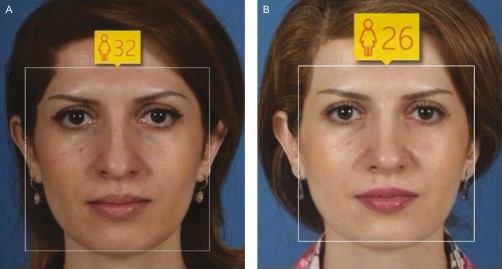Rhinoplasty may make a woman look up to three years younger, according to a new study led by researchers at UCLA that used machine learning.
The researchers used the technology to study before-and-after photos of 100 female patients, ages 16 to 72, all of whom underwent rhinoplasty for cosmetic reasons by a UCLA surgeon and senior author of the study. At 12 or more weeks later, standardized photographs were analyzed with the technology, which estimates a person’s age by cropping the face from a photograph and then extracting a prediction through an algorithm.
“Rhinoplasty is widely recognized as a facial beautification procedure, but it isn’t commonly known for its anti-aging effects,” says Dr. Robert Dorfman, lead author of the study and a resident physician in the division of plastic and reconstructive surgery at the David Geffen School of Medicine at UCLA, in a news release. T
Until now, Dr. Dorfman says, there has been little to no objective scientific evidence for the rejuvenating effect of rhinoplasty. “This technology allows us to accurately estimate age in an objective way and has proven to recognize patterns and features of aging beyond what the human eye can perceive.”
The results were even more dramatic in women over 40, some of whom were estimated to look seven years younger after rhinoplasty. However, because the sample size of the 40-plus group was small (25 women), the researchers said further studies need to be done to validate the results. (The median age of the study participants was 32.)
“The nose loses support as it ages and can take on a more prominent or droopy appearance,” said Dr. Jason Roostaeian, senior author of the study and associate clinical professor in the division of plastic and reconstructive surgery at the Geffen School.
The nose is also affected when other features of the face age. “When we lose facial fat and volume in our cheeks, which are the canvas that our nose sits on, the nose becomes more prominent.”
By refining the nose, he adds, the youthful appearance of the entire face can be refined. “This is something we have subjectively thought for many decades but now we have objective evidence through artificial intelligence to support this.”



